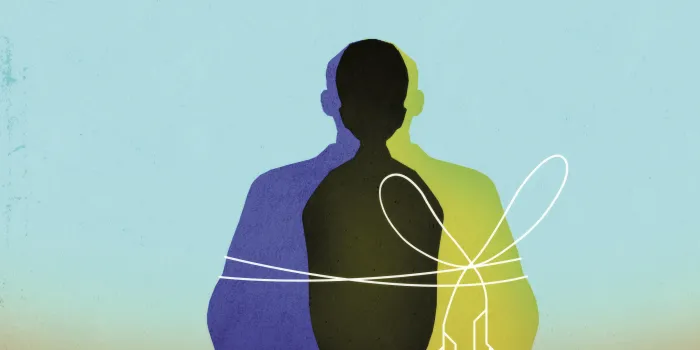For Dan Liedl, 55, getting out of the house can be difficult. One reason is his physical disability—his right leg locked after a severe bleed when he was 12, and he has not been able to bend it since. But perhaps more significant than his limited mobility is the effect his severe hemophilia A has had on his social life. “I feel extremely self-conscious about walking stiff-legged,” says Liedl, of Morgantown, West Virginia. “People stare at me.
As a kid, I spent a lot of time lying in bed in pain and not being able to go out and play. My best friends were books, and they still are.”
Several recent studies have shown that loneliness, depression and a sense of isolation are common for older adults. These feelings may be especially acute among older adults with chronic diseases. And although they probably share many of the same concerns as their unaffected peers, older adults with bleeding disorders face unique challenges.
A Lonely Generation
Depression and isolation among older people with bleeding disorders can be attributed in part to their place in the history of the disease, says Dana Francis, MSW, a social worker in the adult hemophilia program at the University of California San Francisco Hemophilia Treatment Center.
“The average life span for someone with hemophilia used to be 30 to 40 years,” Francis says. He also points out that more than half of the men with hemophilia who acquired HIV or AIDS in the early to mid-1980s through their exposure to contaminated blood or blood products died of AIDS.
“These guys lost a lot of friends, and they may struggle with survivor’s guilt,” Francis says of older men with bleeding disorders. “The older guys today are facing physical and emotional challenges that people with bleeding disorders never had to before because they didn’t live long enough.”
Three Ways to Combat Loneliness and Isolation
Studies have shown that having strong social relationships in later life conveys a number of health benefits, including increased longevity, a stronger immune system and lower levels of stress and depression. If you’re feeling alone, here are some options that can help.
1. Reach out for support
Therapy is anathema to a lot of men, who are socialized to want to appear strong and invulnerable. But keeping feelings inside can lead to depression, anxiety and loneliness. Social worker Dana Francis recommends joining a support group specifically for people with bleeding disorders, whether in person or online.
“I try to encourage guys to do whatever they’re comfortable with—in whatever way they are able,” he says. “It can be incredibly important to feel like you don’t have to explain your situation to others and to know you’re not alone. And it doesn’t always have to be about commiserating. I want men to talk about all of it, whether it’s sadness, loneliness or joy.”
2. Venture out of your comfort zone
Dan Liedl is an introvert, but, somewhat paradoxically, he’s learned that he loves public speaking. He regularly speaks to groups about bleeding disorders and HIV. “I feel confident in front of groups, and I believe that education is the greatest way to overcome misunderstandings, stereotypes and ignorance,” he says. “It is energizing and validating, and I’m not being confronted with making chitchat or socializing.”
3. Get involved in your community
It can be tough to go outside when you’re not feeling good, but take the opportunity when you can. “Get involved,” advises Mike Clancey, 70, of Grove City, Pennsylvania, who has hemophilia A. “Whatever it is—volunteering, working part time, participating in religious activities—stay active in the community somehow.” Francis adds: “Do anything that floats your boat, whether it’s music, art, whatever. Just get up and get out.”
Find a local hemophilia treatment center where you can speak to a social worker

